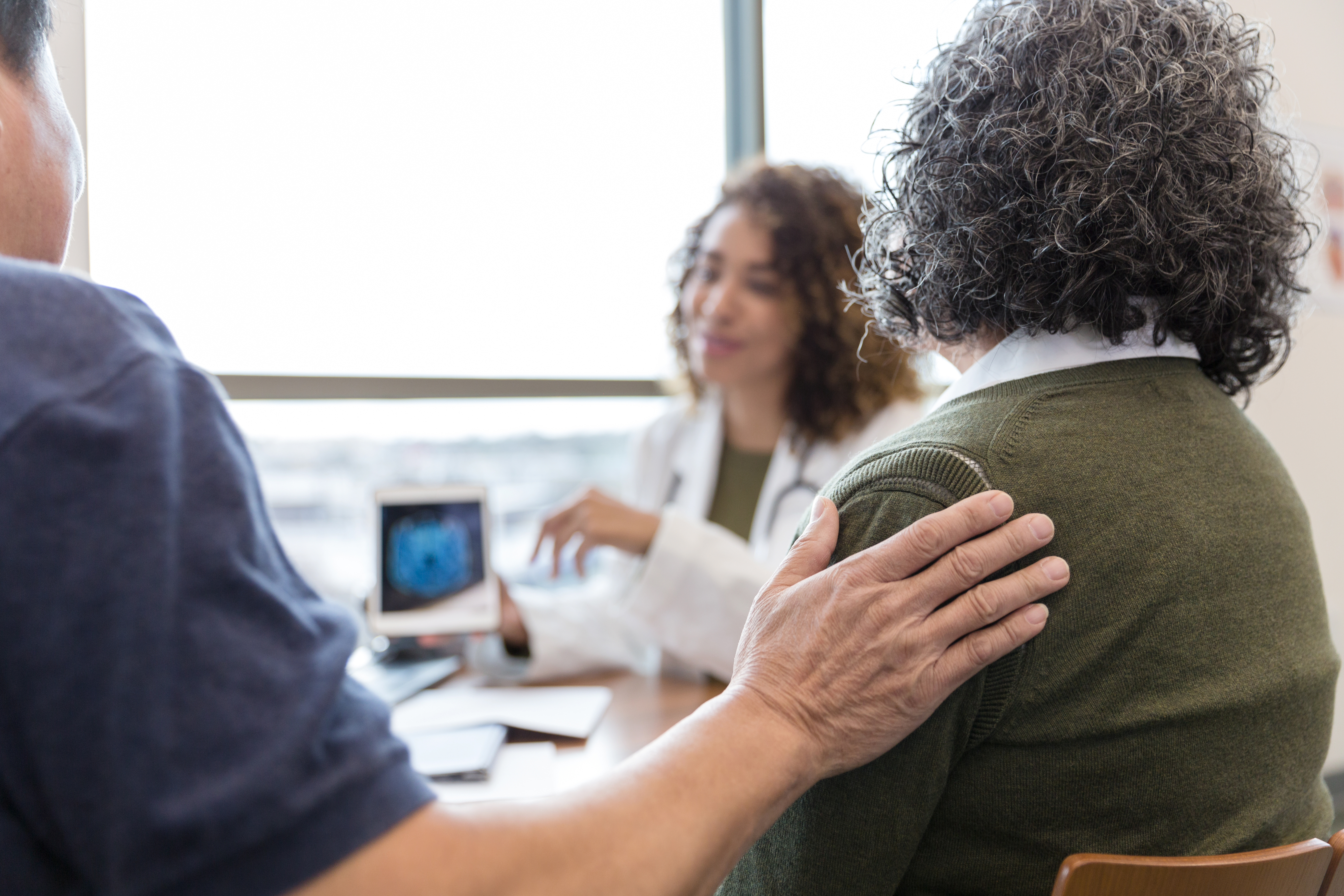Glossary
Although the clinical trial is ongoing, it is not looking for participants.1
A (favorable or unfavorable) change in the health of a participant, including abnormal laboratory findings, that happens during a clinical study or within a certain amount of time after the study has ended. This change may or may not be caused by the intervention/treatment being studied.1
A person helping to care for a loved one who is unable to manage day-to-day life alone due to an illness. This role includes helping with daily needs, managing the household, and supervising health care.2
A clinical trial, also called a research study, is a voluntary interventional study conducted in people and designed to test the safety or effectiveness of drugs, vaccines, and other therapies, or new ways of using existing treatments.1
An individual who participates in a clinical trial or research study.2
Clinical trials are conducted in a series of parts. Those parts are called “phases,” and they test how safe and effective a drug is, as well as dosing and side effects.1
The disease, disorder, syndrome, illness, or injury that is being studied.1
Chorea is a movement disorder that causes sudden, unintended, and uncontrollable jerky movements of the arms, legs, and facial muscles. Chorea is seen in many diseases and conditions and is caused by overactivity of the chemical dopamine in the areas of the brain that control movement.3
A neurological movement disorder characterized by involuntary (unintended) muscle contractions that cause slow repetitive movements or abnormal postures that can sometimes be painful.4
A way for qualified patients with serious diseases or conditions who cannot participate in a clinical trial to access a medical product that has not been approved.1
The main requirements to join a clinical trial, which may include a person’s age, sex, and health. Eligibility criteria have two parts: inclusion criteria (what allows someone to participate) and exclusion criteria (what prevents someone from participating).1
Signing consent to participate in a clinical trial.5
Reasons a person is not allowed to participate in a clinical trial.1
Huntington's disease (HD) is an inherited disorder that causes nerve cells (neurons) in parts of the brain to gradually break down and die. The disease attacks areas of the brain that help to control voluntary (intentional) movement, as well as other areas. People living with HD develop uncontrollable dance-like movements (chorea) and abnormal body postures, as well as problems with behavior, emotion, thinking, and personality.6
Reasons that allow a person to participate in a clinical trial.1
Clinical trial information provided to potential and enrolled participants that goes over the details of a clinical trial, including the risks and benefits to participation.1
The document a potential clinical trial participant must sign to acknowledge they have reviewed and understand what participation in the clinical trial entails.1
An investigational drug is not approved for use or by prescription from doctors for the condition being studied. Investigational drugs are tested during clinical research studies to see if they are safe and effective for a specific medical condition and/or group of people.5
The use of an already approved drug in a clinical trial to see if it may be safe and effective for a different medical condition or population.5
A group of people who make sure a clinical trial is performed in an ethical manner and that participants’ rights are protected. IRBs include doctors, advocates, and experts. An IRB may also be known outside of the United States as an independent ethics committee (IEC).7
A substance that does not contain an active drug, but looks, tastes, and is given like the actual drug being studied.1
PPD can occur up to 1 year after having a baby, but most commonly starts about 1 to 3 weeks after childbirth. Women with postpartum depression have intense feelings of sadness, anxiety, or despair that can prevent them from being able to do daily tasks.8
The description of a clinical trial, including goals, design, methods, data, and background information.1
Looking for answers to a specific question?
Learn about clinical trials and more
ABOUT CLINICAL TRIALS

Everything you need to know about clinical trials from the steps for participation to the steps to get investigational drugs approved.
Read MoreWHAT TO EXPECT AS A PARTICIPANT

Resources potential participants may need for finding clinical trials, understanding clinical trial listings, and more.
Read moreWHAT TO EXPECT AS A CARE PARTNER

Care partners play a vital role in clinical trial participation. We have created resources just for you.
Read More- Clinicaltrials.gov Glossary Terms. National Library of Medicine. Accessed December 6, 2023. https://clinicaltrials.gov/study-basics/glossary
- Glossary of Terms on Clinical Trials for Patient Engagement Advisory Committee Meeting. U.S. Food & Drug Administration. Accessed December 6, 2023. https://fda.report/media/108378/Clinical-Trail-Glossary-Terms.pdf
- Chorea. National Institute of Neurological Disorders and Stroke. Accessed December 6, 2023. https://www.ninds.nih.gov/health-information/disorders/chorea#
- Dystonia. National Institute of Neurological Disorders and Stroke. Accessed December 6, 2023. https://www.ninds.nih.gov/health-information/disorders/dystonia#
- Institutional Review Board. Definition of Terms. Mayo Clinic. Accessed December 6, 2023. https://www.mayo.edu/research/institutional-review-board/definition-terms
- Huntington’s Disease. National Institute of Neurological Disorders and Stroke. Accessed December 6, 2023. https://www.ninds.nih.gov/health-information/disorders/huntingtons-disease
- Learn About Clinical Studies. U.S. National Library of Medicine. Accessed December 1, 2023. https://classic.clinicaltrials.gov/ct2/about-studies/learn
- Postpartum Depression. American College of Obstetrics and Gynecology. Accessed December 6, 2023. https://www.acog.org/womens-health/faqs/postpartum-depression